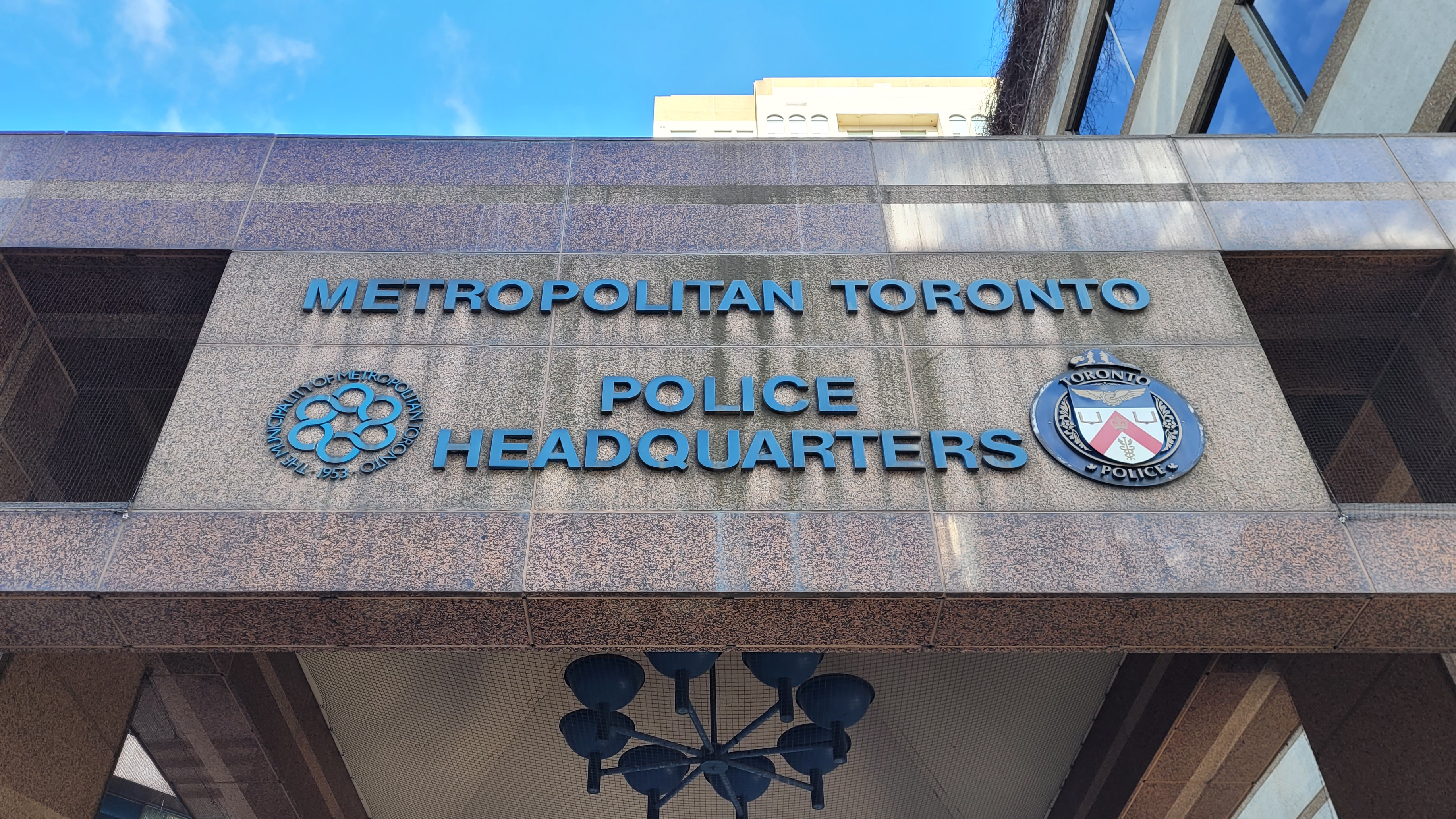
Listen to the full story here:
Toronto Police Chief Myron Demkiw said reported hate crimes have spiked in Toronto since Hamas’ attacks in Israel last fall and that his officers will continue to respond with additional patrols and an increased presence at places of worship.
The TPS responded to 989 hate-related calls for service since Oct. 7, a 93 per cent increase compared to the same period last year, Demkiw told a press conference on Mar. 18.
“Of the 84 hate crimes so far in 2024, 56 per cent are antisemitic,” he added. According to a Toronto Police press release, LGBTQ2S+ communities were the next most targeted group followed by calls to police about anti-Black and anti-Muslim/Arab/Palestine hate crimes.
Islamophobic attacks, the chief told reporters, are likely much higher: “I know from talking to people in the community that Islamophobia is a significant concern, “ he said.
“We have developed training internally for our members around issues around Judaism and Islam to create a greater cultural competency around recognizing the impacts of hate and the impacts of events that are happening in our city,” Demkiw said.
Recently released data from Statistics Canada shows that complaints about hate crimes were on the rise in Toronto even before war exploded in Israel and Gaza. Hate crime-related reports to Toronto police rose in 2022 to 847, or 14.2 per 100,000 people. That compares to 780 reported incidents in 2021, or 13.3 complaints per 100,000.
In 2022, the number of reported hate crimes targeting race or ethnicity rose for the fourth year in a row and hate crimes targeting sexual orientation rose for the second year in a row, Statistics Canada said in the report.
Lisa Delcol, president of Toronto Pflag, an organization dedicated to helping LGBTQ2S+ people and families, said people need to confront anti-LGBTQ2S+ sentiment, even in everyday conversations.
“We need people from outside of the community to recognize the harm that’s being caused, and to speak up about it,” Delcol said. “It may not always be safe to speak up, and I’m not suggesting anybody needs to put themselves in harm’s way. I will say that it’s going to be uncomfortable sometimes.”
Delcol said the data pointing to more incidents targeting LGBTQ2S+ communities come as no surprise: “This just confirms… the things that we have been feeling over the past few years,” she said.
Malka Daniels, a Jewish student in the business management program at TMU, said the rise in reported cases of antisemitism is compounded by what she sees happening online.
“Recent events of threats, like bomb threats, or stabbing threats, shooting threats, those are all publicly posted online” where they can have an even bigger impact, said Daniels, who is the careers and networking director for Hillel TMU.
Daniels said the Jewish community feels isolated from the broader public, but has doubts about this being rectified any time soon.
“I don’t think empathy is something a lot of the general public is currently having towards members of the Jewish community… for the time being, all we can necessarily do is support ourselves within the community and that’s what we’ve been doing.”
Adara, a Muslim Palestinian woman in Toronto who asked that her real name not be used because she is concerned about possible retribution at work, said the latest figures on hate crimes don’t convey the reality of Islamophobia in Canada.
“I don’t think there’s enough numbers in the world to truly represent the severity of it,” Adara said. “So long as I’ve been in this country, and that’s been well over, like 20 years now, this has existed.”
She said harmful stereotypes of Muslims “shape how authority interacts with individuals in these conflict scenarios, let alone how they resolve them… So I think this is bigger than us.”
Drawing attention to Islamophobia and the hate crimes that result is key to combating Islamophobia, Adara added.
“The world needs to start recognizing (hate crimes are) a very big deal and to open their eyes to the idea that it could exist around them,” Adara said. “I generally just really appreciate the fact that (the subject) has just been given the light of day.”
Warren Silver, data analyst and national training officer for Statistics Canada, said the agency does other survey work on victimization and the results suggest that only about 29 per cent of all hate-related incidents are reported to police. He also noted that when police services do more community outreach, reports of hate crimes increase.
“That increase could be because there are more victims willing to come forward,” he said.
Toronto police have a history of difficult relationships with many of the same communities in the city now feeling the effects of hate-fuelled attacks. The Toronto police themselves have found racial discrimination to be a systemic problem. The TPS was also harshly criticized by LGBTQ2S+ communities for their failures in investigating serial killer Bruce McArthur
Silver noted that there have been improvements and pointed to the Toronto force’s active hate crime unit as an example.
“Over the last while they’ve been doing a lot of outreach, working with the 2SLGBTQIA+ community, with different religious and racialized communities.” Silver said. “As they build these bridges, trust is more likely established. Because of that, victims might likely come forward more.”
Delcol said a fraught relationship with the police is still something she sees in her work, especially in the trans community. “It’s not surprising to me that (people are) not reaching out,” she said, noting there are systemic barriers to understanding gender identity and sexual orientation.
As an example, she referred to recent legislation requiring parental notification of name and pronoun changes in schools like that passed in Saskatchewan and New Brunswick.
Scott Martin is a reporter for On The Record, Winter 2024 with a focus on politics.
This article may have been created with the use of AI tools such as
Scott Martin is a reporter for On The Record, Winter 2024 with a focus on politics.

